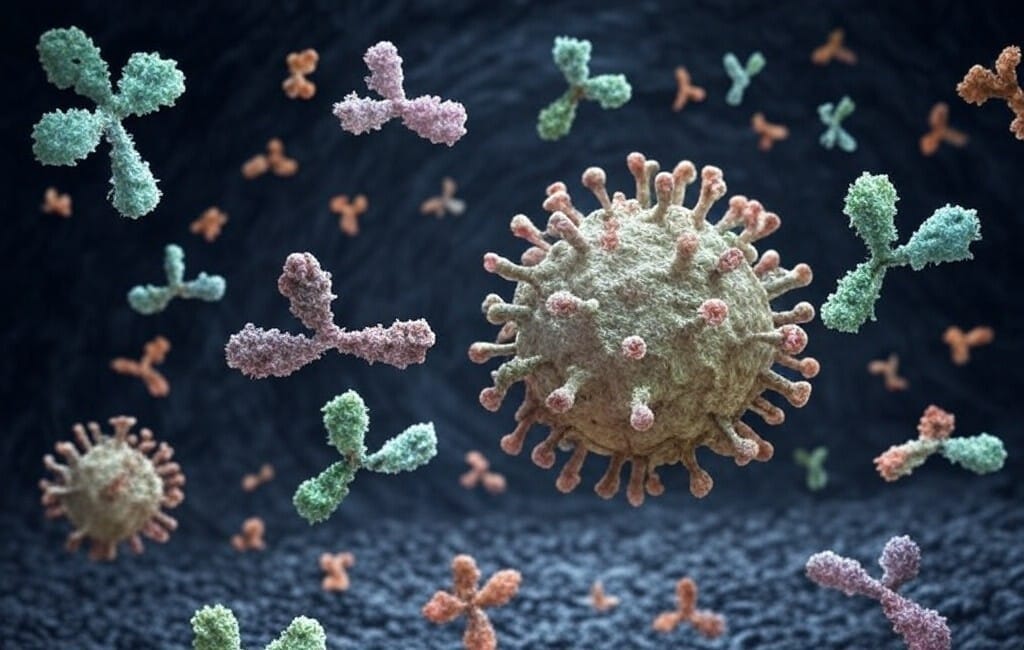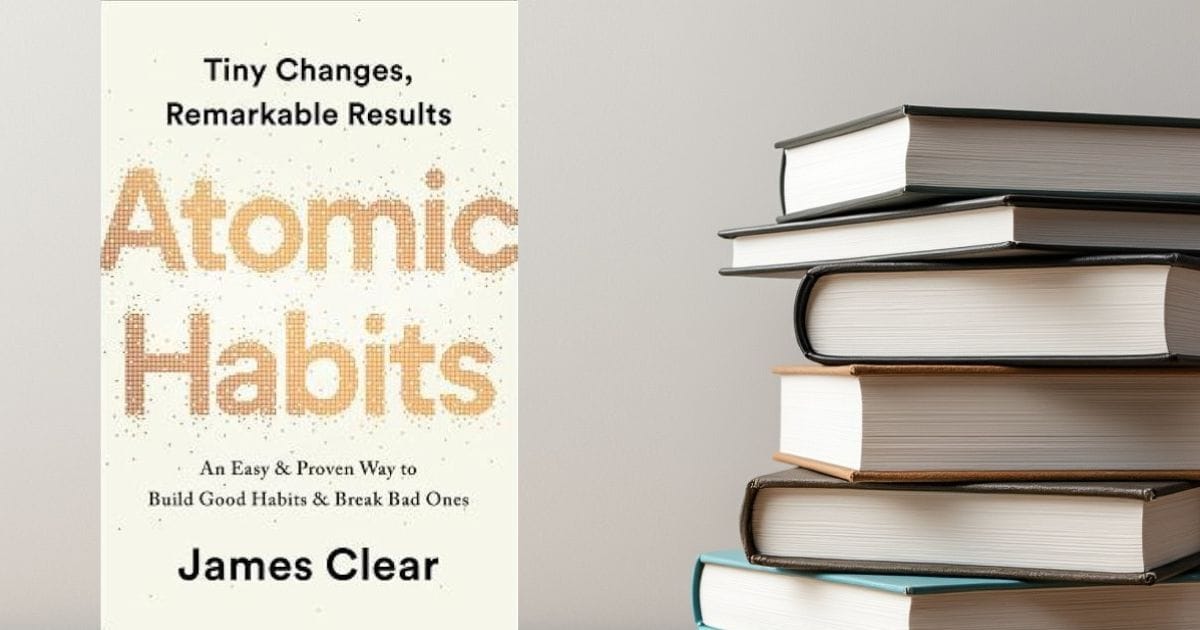- ThriveWire
- Posts
- Reverse Aging in 2025: Must-Know Breakthroughs 🧬
Reverse Aging in 2025: Must-Know Breakthroughs 🧬
Boost longevity, build habits that last, and sip your way to a healthier life in 2025.
Welcome to the first ThriveWire of 2025!
Happy New Year, ThriveWire readers!
It’s January 1st, a fresh start and the perfect time to take charge of your health, rethink your habits, and set the stage for your best year yet.
This week, we’re exploring how antibodies, those precision tools of your immune system, might soon do far more than fight infections. Could they hold the key to slowing aging itself?
Plus, we’ve got insights on how your morning coffee could boost longevity, practical strategies to build habits that actually stick, and inspiring stories from centenarians and superagers proving what’s possible with the right mindset.
Let’s make this year count!
Here’s what’s inside:
☕ Is Your Morning Coffee a Longevity Booster? New science shows how 2–3 cups a day might add healthy years to your life.
🧬 Antibodies: The Next Big Thing in Slowing Aging? How cutting-edge research is turning these immune protectors into tools to fight aging and extend healthspan.
🛠️ Build Habits That Stick: Small Changes, Big Results. Start 2025 right with proven strategies to create habits that last, inspired by Atomic Habits by James Clear.
🤔 What Else is Happening This Week?
🍽️ Eat to 100: Eight centenarians share their secrets for a longer life.
💊 Top 5 Longevity Drugs: From rapamycin to senolytics, Andrew Steele explores the leading anti-aging treatments.
🗽 102 and Thriving in NYC: Meet Hilda Jaffe, the “superager” living independently and inspiring us all.
📉 Tirzepatide for Weight Loss and Diabetes: This 3-year study shows remarkable benefits for obesity and prediabetes.
Is Your Morning Coffee a Longevity Booster? ☕

For years, coffee got a bad rap, but the tide has turned. New research shows that your daily cup (or two) might be doing far more than jumpstarting your morning. It could actually help you live longer and healthier.
The Buzz on Coffee and Longevity
Here’s why that morning brew might be your secret health ally:
Live Longer: Studies show regular, moderate coffee intake (2–3 cups per day) can reduce all-cause mortality by 17%, potentially adding more healthy years to your life.
Protect Against Age-Related Diseases: Coffee is linked to lower rates of cardiovascular disease, stroke, certain cancers, and respiratory illnesses. Bonus: It may also help fend off age-related declines in memory, mood, and mobility.
Cellular Benefits: Coffee’s key compounds, caffeine and chlorogenic acids, help reduce inflammation, improve metabolic balance, and maintain cellular health by supporting your body’s stress response and genetic stability.
But Here’s the Catch
More isn’t always better. The sweet spot appears to be 2–3 cups a day, and individual responses can vary based on genetics, brewing methods, and coffee type.
Quick Tip: Skip the sugar-laden syrups and creamers - they’ll cancel out the benefits. Opt for black coffee or add a splash of unsweetened almond or oat milk.
The Bottom Line ☝️
Your morning ritual isn’t just waking you up, it might be setting the stage for healthier aging. So go ahead, sip away, and toast to a longer, healthier life (in moderation, of course).
Antibodies: The Next Big Thing in Slowing Aging? 🧬

We already know antibodies are essential for fighting infections, but what if they could also help slow aging itself? New research shows that these protective proteins may hold the key to better immunity, longer healthspans, and even extended lifespans.
How Antibodies Work
Antibodies are precision tools produced by your immune system. They latch onto specific targets, like bacteria or viruses, flagging them for destruction. Scientists have long used this precision to develop life-saving treatments for conditions like cancer, autoimmune diseases, and even as tools in Covid-19 rapid tests.
Now, researchers are turning antibodies toward an even bigger prize: aging.
Antibody Breakthroughs in Aging Research
Here’s a look at recent breakthroughs showing how antibodies might slow aging and improve health:
Clearing “Zombie” Cells: In 2021, researchers used antibodies to target and destroy senescent cells (damaged, aging cells) that accumulate as we get older. Removing these cells in mice led to longer, healthier lives.
Rejuvenating Skin: Antibodies carrying targeted drugs reversed signs of aging skin in old mice by rejuvenating cellular function (2023).
Improving Immunity: In March 2024, antibodies were used to target defective bone marrow cells, boosting vaccine responses in aging mice. Since these cells are linked to blood cancers and heart disease, the benefits could be far-reaching.
Extending Lifespan: In July 2024, scientists found that antibodies targeting a protein called IL-11 reduced inflammation and extended mouse lifespans by an impressive 25%, similar to rapamycin, one of the most well-studied longevity drugs.
Why It Matters for You 🧪
The research is still early, but this isn’t science fiction. Anti-IL-11 antibodies are already in human clinical trials, showing early signs of safety.
If results hold up, this could pave the way for an injection-based treatment to reduce inflammation and improve aging-related health, potentially replacing the need for multiple medications.
As Greg Winter, a Nobel Prize-winning scientist, put it: “I wish I could just have an injection every six months and forget about all those pills.” That day might not be far off.
The Bottom Line 🗝️
Antibodies may soon be a game-changer in the longevity space, clearing aging cells, reducing inflammation, and improving immunity. If these therapies deliver on their early promise, they could help us not just live longer but stay healthier as we age.
Stay tuned, 2025 could be a landmark year for antibody-based anti-aging treatments.
Build Habits That Stick: Small Changes, Big Results 🛠️

January is prime time for New Year’s resolutions, but let’s face it, most don’t last. The problem? Relying on motivation instead of building systems. In Atomic Habits, James Clear explains how small, consistent actions can snowball into life-changing results. Here’s the science-backed strategy for creating habits that stick:
Focus on Systems, Not Willpower
Instead of setting vague goals like “I’ll get fit this year,” focus on small, actionable systems: “I’ll go for a 10-minute walk after dinner” or “I’ll prep vegetables for the week every Sunday.” Systems make progress inevitable by removing the need for constant willpower.
The 4 Laws of Behavior Change
James Clear outlines four simple steps to make habits stick:
Make it Obvious: Set visual cues, like leaving your running shoes by the door.
Make it Attractive: Pair habits with rewards - listen to your favorite podcast while exercising.
Make it Easy: Start small. The Two-Minute Rule makes any habit manageable: “Do it for just two minutes.”
Make it Satisfying: Track your progress. Seeing a streak on a habit tracker keeps motivation high.
Identity is the Secret Weapon
Habits aren’t just about what you do; they’re about who you want to become. Instead of “I’ll try to eat better,” tell yourself, “I’m someone who makes healthy choices.” Small wins reinforce this new identity, making habits easier to stick to over time.
Embrace the Power of 1% Gains
Improving by just 1% a day might feel insignificant, but it compounds. Over a year, those tiny improvements add up to a 37x gain. Start small, stay consistent, and let time do the work.
The Bottom Line
Habits aren’t built overnight. Small, consistent changes create momentum, turning new behaviors into lifelong habits.
If you’re ready to transform your habits in 2025, I highly recommend reading Atomic Habits. It’s packed with practical advice to help you build healthier habits and is one of the books that has the greatest impact on my life.
What Else is Happening This Week? 🤔
Eat to 100: Secrets from Centenarians 🍽️ What’s the secret to living to 100? Eight of the world’s oldest people share their eating habits.
The Top 5 Longevity Drugs to Watch 💊 From rapamycin to senolytics, this video by Andrew Steele explores the most promising drugs that could slow aging and extend lifespan.
102 and Thriving in NYC 🗽 Meet Hilda Jaffe, a 102-year-old “superager” who lives alone in Manhattan, carries her own groceries, and stays sharp with daily walks, music, and volunteering. Her secret? Resilience, connection, and staying active.
Tirzepatide Slashes Diabetes Risk and Body Weight 📉 New 3-year trial data shows tirzepatide leads to up to 19.7% weight loss and reduces type 2 diabetes risk by over 90% in people with obesity and prediabetes.
Thanks for reading this week’s ThriveWire! 💡
As we kick off 2025, let’s focus on what really matters: small, consistent actions that build momentum for a healthier, happier year ahead. Whether it’s fine-tuning your habits, prioritizing better nutrition, or staying curious about the latest longevity science, every step adds up.
What’s your top health goal for the year? I’d love to hear from you! If ThriveWire brought value to your week, share it with someone who might need a little extra inspiration to start their year strong.
Here’s to a year of health, growth, and thriving together. Let’s make 2025 your best year yet!
“You do not rise to the level of your goals. You fall to the level of your systems.” – James Clear, Atomic Habits
Stay healthy,
Andrew Courtney
Founder, ThriveWire
How did we do with todays Newsletter?Your feedback helps us make ThriveWire better. |
Disclaimer: The information provided in ThriveWire is for educational purposes only and is not a substitute for professional medical advice, diagnosis, or treatment. Always consult your healthcare provider before making changes to your diet, exercise routine, or health regimen.